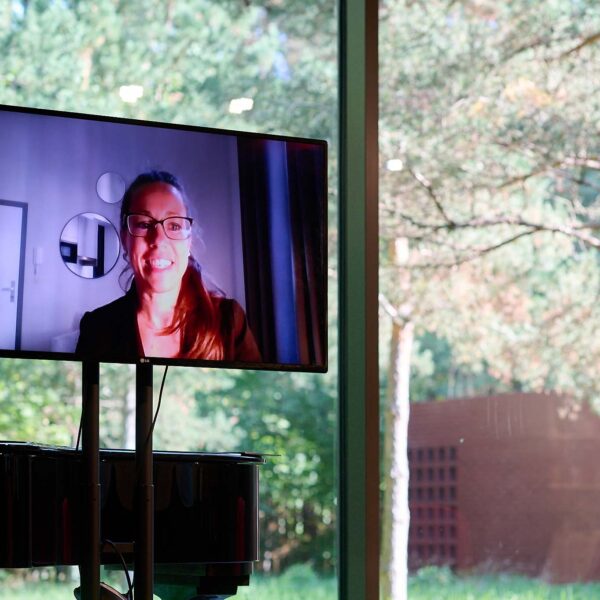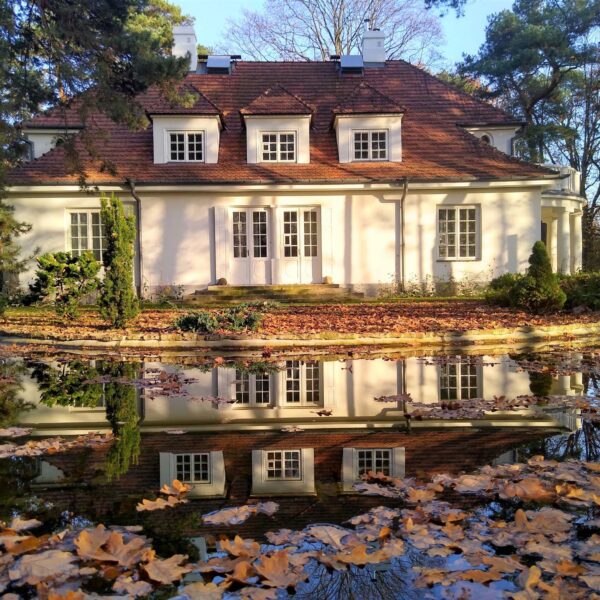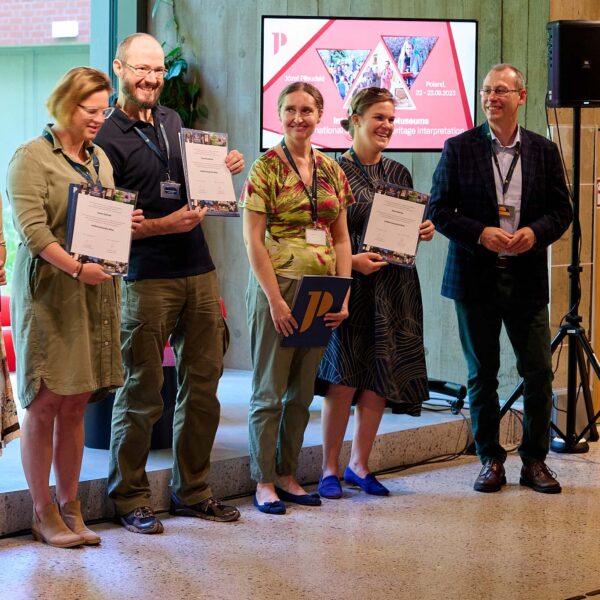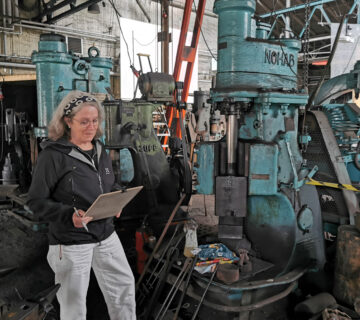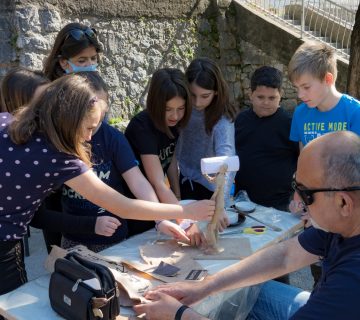A beautiful venue and warm atmosphere – perfect circumstances for talking about interpretation in the Józef Piłsudski Museum in Sulejówek.
On 22-23 September, passionate interpreters and museum professionals met in Sulejówek, near Warsaw, Poland, to discuss how heritage interpretation can help museums. Some of the guests joined us online, including IE’s Managing Director Helena Vičič, who gave the keynote speech. Dragana Lucija Ratković Aydemir (Muses Ltd, Croatia, a consulting and management company in culture and tourism, and also former IE Country Coordinator Croatia) showed how the interpretive method can be used during creation of museum exhibitions, while Patrick Lehnes (University of Freiburg, Germany, also former IE Managing Director and current Cultural Heritage Coordinator) made us aware of the deep philosophical roots of interpretation and the important questions about its role in the face of contemporary challenges. Invited speakers talked about applications of interpretive methodology in museum education, exhibition design and public events. Participants were also able to visit the Piłsudski manor house, the permanent multimedia exhibition and take part in several interpretive walks.
The seminar was organised as a summary of a project that has been run for the past year in the frame of Erasmus+ programme. In collaboration with Muses from Croatia, 30 museum employees took part in IE certified courses: Certified Interpretive Guide (CIG) and Certified Interpretive Writer (CIW). The participants were from different departments of the museum, and one of the aims of the project was to create a coherent educational programme for adults, based on interpretive methodology. The trip to Croatia for the courses was preceded by preparations: an English course, a lecture on Croatia and workshops on teamwork, sustainability, accessibility and cultural openness of the museum. After returning from the courses, trainers from the Małopolska Institute of Culture helped the participants during three workshops to transfer the knowledge and experience they had gained in Croatia to the museum environment. During the seminar, our new interpretive guides and writers received certificates from trainer Iva Klarić Vujović (Muses). The great advantages of the project were not only the development of staff competences, but also the integration of the team, the increase in creativity and motivation, breaking the language barrier and learning about a new culture.
The museum in Sulejówek takes care of the legacy of Józef Piłudski – a Polish leader, commander and politician, considered the father of Polish independence, regained in 1918 after 123 years of enslavement by empires. Sulejówek was where he settled with his family – his wife Aleksandra and daughters Wanda and Jadwiga – in the first half of the 1920s. The museum complex in Sulejówek consists of ‘two hearts’: the original manor house of Piłsudski’s family, Milusin, surrounded by a historical garden; and a modern building, opened in 2020, with huge underground narrative exposition. In these two parts, two complementary narratives are built, focused around different areas of memory, and conducted by different measures – the story about father, husband and writer told through multi-sensory immersion in authenticity and a narrative about the politician and statesman created with the support of multimedia through a permanent exhibition. Conscious interpretation of this heritage is very important to the museum, and it is going to be developed by introducing interpretive walks into the museum services as well as creating a special heritage interpretation department and planning Erasmus+ Small Scale Partnership programmes on a similar field.
The recording of the first day of the seminar is available online: https://www.youtube.com/watch?v=Ftta0IgGDA8
Barbara Gołębiowska works as Head of Education in the Józef Piłsudski Museum in Sulejówek, Poland (www.muzeumpilsudski.pl). You can get in touch with her at: b.golebiowska@muzeumpilsudski.pl.
To cite this article: Gołębiowska. Barbara (2023) ‘Interpreting our museums ‘in Interpret Europe Newsletter 3-2023, pg. 6-7.
Available online: https://interpret-europe.net/wp-content/uploads/2023/10/PDF-Newsletter-2023_3-autumn.pdf

